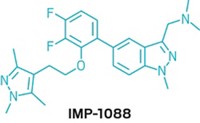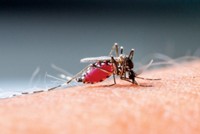Advertisement
Grab your lab coat. Let's get started
Welcome!
Welcome!
Create an account below to get 6 C&EN articles per month, receive newsletters and more - all free.
It seems this is your first time logging in online. Please enter the following information to continue.
As an ACS member you automatically get access to this site. All we need is few more details to create your reading experience.
Not you? Sign in with a different account.
Not you? Sign in with a different account.
ERROR 1
ERROR 1
ERROR 2
ERROR 2
ERROR 2
ERROR 2
ERROR 2
Password and Confirm password must match.
If you have an ACS member number, please enter it here so we can link this account to your membership. (optional)
ERROR 2
ACS values your privacy. By submitting your information, you are gaining access to C&EN and subscribing to our weekly newsletter. We use the information you provide to make your reading experience better, and we will never sell your data to third party members.
Biological Chemistry
Nanoparticles Target Resistant Parasites
Pharmaceuticals: New drug formulation may improve treatment for sleeping sickness
by Judith Lavelle
July 13, 2015
| A version of this story appeared in
Volume 93, Issue 28
Drug therapies for the parasitic infection African trypanosomiasis, or sleeping sickness, have long had problems with high toxicity. These drugs must be administered in a hospital because of the likelihood of brain swelling and other reactions. In addition, many parasite strains have developed resistance by evolving altered transport proteins that keep the drugs out of their cells. But Spanish scientists may have discovered a way to address both problems with a novel formulation of the antiparasite drug pentamidine (PLOS Pathog. 2015, DOI: 10.1371/journal.ppat.1004942). By preparing a pentamidine-loaded chitosan nanoparticle that enters the parasite through endocytosis instead of through membrane transport, a team led by the University of Granada’s José A. Garcia-Salcedo was able to lower the curative dose of pentamidine in mouse models to 1% of the normal dose. Even mice infected with resistant parasite strains lived significantly longer when treated with the nanoparticles than with free pentamidine. “This is a very intriguing paper in which the formulation of an existing drug is altered to improve treatment rather than screening for new drug entities,” says tropical disease pathologist James McKerrow of the University of California, San Diego.





Join the conversation
Contact the reporter
Submit a Letter to the Editor for publication
Engage with us on Twitter